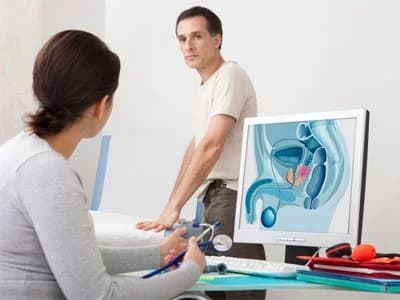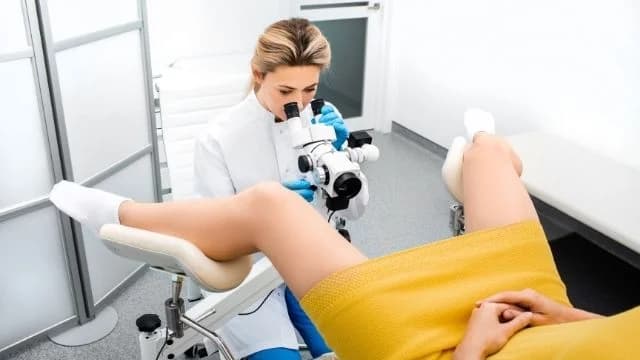Andrology is a branch of science dealing with male reproductive functions under physiological and pathological conditions, also considered the male version of gynecology. While urogynecology focuses on diagnosing and treating women with pelvic floor disorders.
What is andrology?
Andrology is a medical specialty that deals with the male reproductive system and urological problems found only in men. Although this branch of medicine is the direct equivalent of gynecology it has only been studied since the late 1960s.

What conditions does an andrologist treat?
Andrologists are mostly urologists, but depending on the condition or procedure, a patient may see other types of specialists, including surgeons or psychiatrists. Andrology covers a wide number of conditions and functions, including male fertility, penile problems, and genitourinary disorders. Specialists in andrology may deal with procedures such as vasectomy, prostatectomy, and circumcision.
When should you see an andrologist?
Since these specialists deal with all male health and reproductive system problems, any medical problem that is unique to men and experienced uniquely in the male body can be dealt with by a specialist in urology. Some of the conditions an andrologist can treat include:
Prostatitis
Prostate cancer
Penile cancer
Testicular cancer
Erectile dysfunction
Varicocele
Hydrocele
Balanitis
Testicular torsion
Premature ejaculation

How is Andrology Different from Urology?
While andrologists focus on everything related to the male reproductive system, from health to successful fertilization; urologists specialize in the wastewater system (including kidneys, bladder, and urethras). Urologists work with both men and women to treat and manage cancers, infections, anatomical deformities, and bladder muscle dysfunction. For men specifically, they add prostate disease and erectile dysfunction to that list.
What is a Urogynecologist?
Urogynecologists may complete medical school and a residency in either Obstetrics and Gynecology or Urology. Our urogynecology specialists have experience treating all conditions of the female urinary and reproductive tract. They can evaluate and treat conditions that affect the female pelvic organs, and the muscles and connective tissue that support the organs.

Conditions treated by urogynecologists
Congenital anomalies of the lower reproductive tract (for example, imperforate hymen, vaginal septum, uterine anomalies)
Fecal incontinence
Overactive bladder syndrome
Pelvic organ prolapses
Post-hysterectomy prolapses
Stress urinary incontinence
Urethral diverticulum
Urgency urinary incontinence
Vesicovaginal and rectovaginal fistulas
What is a Pelvic Floor Disorder?
The pelvic floor is a series of muscles and connective tissue that support the organs in your pelvis: the bladder, uterus, vagina, small bowel, and rectum. When that support system is weakened, these organs can’t function properly, resulting in conditions like prolapse and incontinence.
Childbirth is the most common cause of pelvic floor disorders in women. Other factors that increase your risk of pelvic floor disorders include obesity, repeated heavy lifting, genetics, and previous pelvic surgery. Pelvic floor disorders are uncomfortable and can severely affect a woman’s quality of life. Patients suffering from pelvic floor disorders such as urinary incontinence or uterine prolapse should seek a visit with aurogynecologist.

Testing and treatments done by urogynecologists
A few common test and treatment options include:
3D ultrasound imaging
Bladder training
Burch procedure
Colpocleisis
Cystoscopy
Cystourethroscopy
Fistula repair
Hysterectomy
Mesh colpopexy
mid-urethral sling surgery
Neuromodulation, including tibial nerve stimulation
Pelvic exercise plan, including Kegel exercises and other physical therapies
Pelvic reconstructive surgery
Pessary fittings and care
Urethral reconstruction
Urethral diverticulectomy/cystectomy
Urodynamic testing
Vaginal vault suspension surgery
Conclusion
Andrology and urogynecology are two specialized fields of medicine that, while distinct, share a common goal: to improve the quality of life for individuals facing reproductive and pelvic health issues. Andrology focuses on the male reproductive system, dealing with conditions such as infertility, erectile dysfunction, and hormonal imbalances. Urogynecology, on the other hand, addresses female pelvic floor disorders, offering treatments for incontinence, prolapse, and other related conditions. Both disciplines emphasize the importance of a multidisciplinary approach to patient care, integrating advances in medical science with compassionate, individualized treatment plans. Together, these fields underscore the significance of specialized care in fostering overall well-being and the profound impact of medical intervention on personal health and happiness.